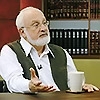Question: From the 17th to the 19th century, one more call was added to the standard anti-Semitic claims, which was heard in different strata of society: to ask, persuade, beg Jews to return to where they came from 2,000 years ago.
For example, French philosopher Charles Fourier wrote: “Jews! Descendants of Cain and Iscariot, leave us, leave us! Cross the Red Sea again and go to the desert, to the promised land that awaits you, to the only country that suits you; you evil, rude and dishonorable people, go there!!!”
After waiting in vain for any concrete action from the Jews, statesmen took the initiative into their own hands. The French Emperor Napoleon Bonaparte, while in Acre, said that the Jews are the true heirs of Palestine, and urged them to admit this fact and return there. A willingness to help Jews was also expressed by American President Abraham Lincoln.
So what did the Jews do? They were in no hurry. Upon getting the rights during the period of emancipation, they rushed into politics, science, and economics and succeeded everywhere. They had no time for the land of Israel.
However, anti-Semitism had grown even more. Before, the Jews were hated for their dissimilarity, then they became like everyone else. And yet the hatred did not disappear.
What is the root of the paradox that the Jews waited so long to return to the land of Israel, and when the opportunity arose, they did not use it? Most Jews today live outside the State of Israel. What is the root of this phenomenon?
Answer: The root is very simple—the lack of connection between the people and the land. The people do not feel that their land is here, that they are attached to it. One does not feel any origins, does not see anything special in this land.
The people are divided. A person comes from the other end of the earth, meets people here who are completely different from them, who also consider themselves Jews, and even, perhaps, greater than him.
And a paradoxical picture arises: Every Jew read and was told that this was his land, and having arrived here, he did not find any connection with it. The climate is terrible, the land is dry and scorched; there are no signs of life. What is promised in it? Where is the earth flowing with milk and honey? There is none of this.
Moreover, Jews who come to Israel do not look like Jews. They live in conflict with each other. A person who came here from Europe understands the French, Germans, British, and Russians among whom he lived more; he cannot understand these Jews at all. After all, people come here mainly from the Maghreb, Asia or even more distant places. It turns out that there is nothing familiar here.
In addition, here you have to work with your hands, farm, cultivate the land so that it becomes more suitable for agriculture. It turns out that Jews have to do work that they have not done for many years.
Since the 18th century, they have been employed in industry, business, finance, science, and art. Even in Russia, where there was very strong anti-Semitism, the founders of the Russian Philharmonic Society, scientists, and artisans were mainly Jews. True, they often hid under pseudonyms, but they were all the same. And where can such conditions be found here?
Question: What does it mean to feel a connection with the earth?
Answer: The feeling of a physical connection with the land is no longer the condition that can be imposed on Jews today. This connection is internal, spiritual.
Perhaps the material connection is felt by someone who has received a special religious Jewish education. He was well stuffed with all sorts of stories about the holy land, and therefore just living on this land is already a great commandment for him.
Besides, in the past, Jews were simply paid to come and live here. Thus, several large communities were built in Tiberias, in Safed, partly in Acre, in Jerusalem, and Jaffa.
For more on this topic, read my books Like a Bundle of Reeds: why unity and mutual guarantee are today’s call of the hour, and The Jewish Choice: Unity or Anti-Semitism, Historical facts on anti-Semitism as a reflection of Jewish social discord.
[268254]
From KabTV’s “Systematic Analysis of the Development of the People of Israel” 8/12/19
[268254]
From KabTV’s “Systematic Analysis of the Development of the People of Israel” 8/12/19


No comments:
Post a Comment